-
 Bitcoin
Bitcoin $115100
-2.89% -
 Ethereum
Ethereum $3630
-5.92% -
 XRP
XRP $2.938
-7.26% -
 Tether USDt
Tether USDt $0.9997
-0.02% -
 BNB
BNB $771.7
-4.73% -
 Solana
Solana $168.1
-7.75% -
 USDC
USDC $0.9998
0.00% -
 Dogecoin
Dogecoin $0.2051
-8.77% -
 TRON
TRON $0.3254
-0.30% -
 Cardano
Cardano $0.7225
-8.10% -
 Hyperliquid
Hyperliquid $39.91
-8.87% -
 Stellar
Stellar $0.3893
-8.98% -
 Sui
Sui $3.497
-10.75% -
 Chainlink
Chainlink $16.49
-9.34% -
 Bitcoin Cash
Bitcoin Cash $555.4
-5.22% -
 Hedera
Hedera $0.2443
-11.50% -
 Avalanche
Avalanche $21.96
-8.45% -
 Ethena USDe
Ethena USDe $1.001
-0.03% -
 Toncoin
Toncoin $3.464
-1.05% -
 UNUS SED LEO
UNUS SED LEO $8.942
0.02% -
 Litecoin
Litecoin $104.3
-6.26% -
 Shiba Inu
Shiba Inu $0.00001214
-7.50% -
 Polkadot
Polkadot $3.629
-6.86% -
 Uniswap
Uniswap $9.159
-10.09% -
 Monero
Monero $303.0
-3.20% -
 Dai
Dai $0.0000
0.01% -
 Bitget Token
Bitget Token $4.365
-2.96% -
 Pepe
Pepe $0.00001052
-9.45% -
 Cronos
Cronos $0.1350
-8.61% -
 Aave
Aave $256.6
-7.94%
Why are Trust Wallet transactions always pending? Solutions to speed up transactions
Pending transactions in Trust Wallet can be caused by network congestion, low fees, or wallet issues; increase fees or update the app to speed up processing.
May 17, 2025 at 05:00 am
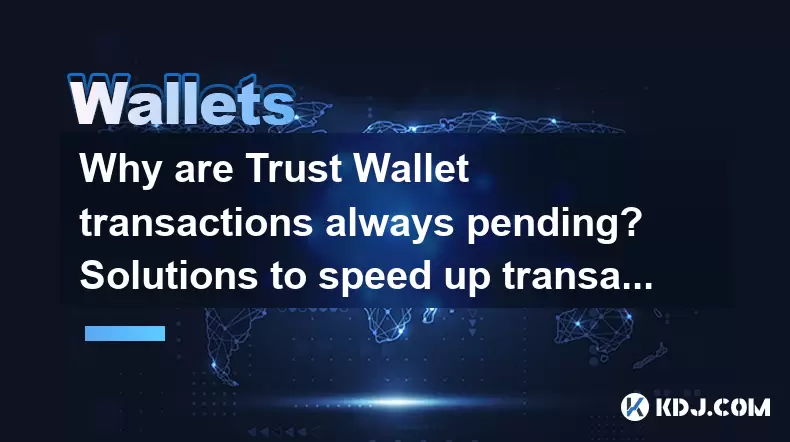
Trust Wallet is a popular mobile cryptocurrency wallet that supports a wide variety of digital assets. However, users occasionally face the issue of transactions remaining pending for an extended period. This article delves into the reasons behind pending transactions in Trust Wallet and provides solutions to speed up the process.
Understanding Pending Transactions in Trust Wallet
Pending transactions in Trust Wallet occur when a transaction is submitted to the blockchain network but has not yet been confirmed. This delay can be caused by several factors, including network congestion, low transaction fees, or issues with the wallet itself.
When you initiate a transaction, it is broadcast to the blockchain network. Miners or validators on the network then pick up these transactions and include them in blocks. The transaction remains pending until it is included in a block and confirmed by the network. The time it takes for a transaction to be confirmed can vary significantly depending on the blockchain's current state.
Common Reasons for Pending Transactions
Several factors can contribute to transactions remaining pending in Trust Wallet:
- Network Congestion: During times of high network activity, such as during a cryptocurrency bull run, the blockchain can become congested. This congestion leads to a backlog of transactions waiting to be processed, causing delays.
- Low Transaction Fees: Each transaction on a blockchain network requires a fee to incentivize miners or validators to include it in a block. If the fee is too low, miners may prioritize other transactions with higher fees, leaving yours pending.
- Wallet Issues: Sometimes, the issue may stem from the wallet itself. This could be due to outdated software, bugs, or incorrect settings within Trust Wallet.
How to Speed Up Pending Transactions in Trust Wallet
If you find your transactions stuck in a pending state, there are several steps you can take to speed up the process:
Increase Transaction Fees: One of the most effective ways to expedite a pending transaction is to increase the transaction fee. Here's how you can do it in Trust Wallet:
- Open Trust Wallet and navigate to the transaction history.
- Find the pending transaction and select it.
- Look for an option to "Speed Up" or "Replace by Fee" (RBF). If available, use this feature to increase the fee.
- If the RBF option is not available, you may need to cancel the transaction and resubmit it with a higher fee.
Wait for Network Congestion to Clear: If the issue is due to network congestion, sometimes the best solution is to wait. Monitor the blockchain's current status using tools like blockchain explorers to see when the congestion clears.
Update Trust Wallet: Ensure that you are using the latest version of Trust Wallet. Developers regularly release updates to fix bugs and improve performance. Here's how to update:
- Open the app store on your device (Google Play Store for Android or Apple App Store for iOS).
- Search for Trust Wallet.
- If an update is available, tap "Update" to install the latest version.
Check Wallet Settings: Sometimes, incorrect settings within Trust Wallet can cause issues. Ensure that your network settings are correct and that you are connected to the right blockchain network.
Using Blockchain Explorers to Monitor Transactions
Blockchain explorers are tools that allow you to view and track transactions on a blockchain. They can be invaluable for understanding why a transaction is pending and estimating when it might be confirmed. Here's how to use a blockchain explorer:
- Find the Transaction Hash: In Trust Wallet, navigate to the transaction history and find the pending transaction. Copy the transaction hash (TXID).
- Visit a Blockchain Explorer: Go to a blockchain explorer website relevant to the cryptocurrency you are using (e.g., Etherscan for Ethereum, Blockchain.com for Bitcoin).
- Enter the Transaction Hash: Paste the transaction hash into the search bar on the blockchain explorer and hit enter.
- Analyze the Transaction: The explorer will show you the current status of the transaction, including its position in the mempool (the queue of pending transactions) and the estimated time until confirmation.
Cancelling and Resubmitting Transactions
If a transaction remains pending for an extended period and you cannot speed it up, you may need to cancel and resubmit it. Here's how to do this in Trust Wallet:
Cancel the Transaction: If the transaction supports RBF, you can cancel it by submitting a new transaction with the same inputs but a higher fee. This new transaction will replace the original one.
- Navigate to the transaction history in Trust Wallet.
- Find the pending transaction and select it.
- If the RBF option is available, use it to submit a new transaction with a higher fee.
Resubmit the Transaction: After cancelling the original transaction, you can resubmit it with a higher fee to ensure it gets processed quickly.
- Go back to the send/receive section of Trust Wallet.
- Enter the same recipient address and amount as the original transaction.
- Set a higher transaction fee.
- Confirm and send the transaction.
Frequently Asked Questions
Q: Can I speed up a transaction if it does not support RBF?
A: If a transaction does not support Replace by Fee (RBF), you cannot directly speed it up by increasing the fee. In such cases, you may need to wait for the network congestion to clear or contact the recipient to see if they can help expedite the process.
Q: How long should I wait before considering a transaction stuck?
A: The time it takes for a transaction to be confirmed can vary widely depending on the blockchain. For Bitcoin, transactions can take anywhere from 10 minutes to several hours. For Ethereum, confirmation times are typically faster, often within minutes. If a transaction remains pending for more than 24 hours, it may be considered stuck.
Q: Can I cancel a transaction if it has already been confirmed?
A: Once a transaction is confirmed on the blockchain, it cannot be cancelled or reversed. Only pending transactions can be cancelled using methods like RBF.
Q: Are there any risks associated with increasing transaction fees?
A: Increasing transaction fees can help expedite a transaction, but it also means you will pay more for the transaction. There is a risk that even with a higher fee, the transaction may still take time to be confirmed if the network is extremely congested. Always consider the cost-benefit before increasing fees.
Disclaimer:info@kdj.com
The information provided is not trading advice. kdj.com does not assume any responsibility for any investments made based on the information provided in this article. Cryptocurrencies are highly volatile and it is highly recommended that you invest with caution after thorough research!
If you believe that the content used on this website infringes your copyright, please contact us immediately (info@kdj.com) and we will delete it promptly.
- Australia vs Lions: Unleashing Betting Offers and Free Bets for the Thrilling Finale
- 2025-08-01 16:30:11
- Bitcoin, Satoshi, and the Echoes of Ancient Wisdom in DeFi
- 2025-08-01 16:50:12
- ONDO Tokens: Could They Mint the Next Crypto Millionaires?
- 2025-08-01 16:30:11
- Satoshi, Meme Coins, and Substance: A New Era?
- 2025-08-01 16:50:12
- Decoding the Roar: Australia, the Lions, and the Betting Odds
- 2025-08-01 16:55:48
- Bitcoin Price Plummets Amid Trump Tariffs: A Market Sell-Off Deep Dive
- 2025-08-01 16:55:48
Related knowledge
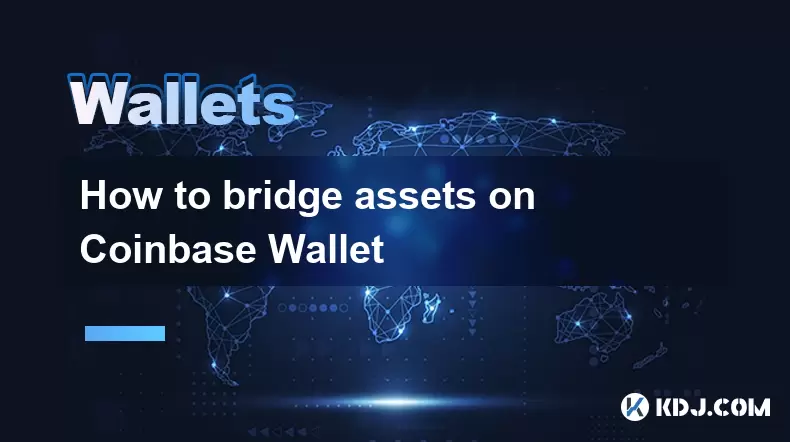
How to bridge assets on Coinbase Wallet
Jul 27,2025 at 01:14am
What Is Asset Bridging in the Context of Coinbase Wallet?Bridging assets refers to the process of transferring tokens from one blockchain network to a...
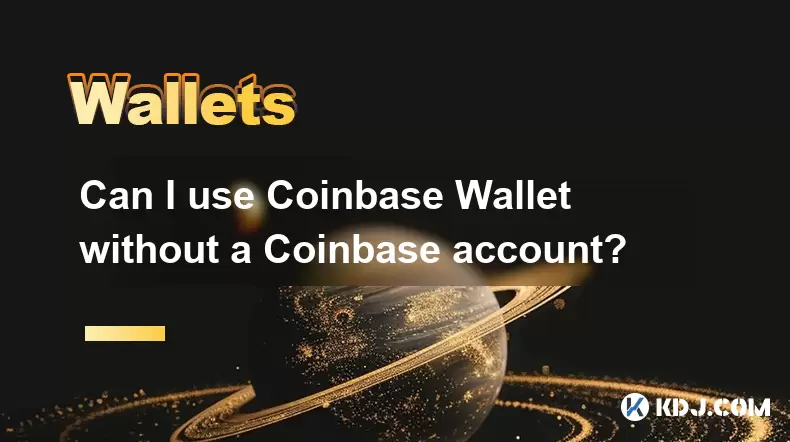
Can I use Coinbase Wallet without a Coinbase account?
Jul 18,2025 at 04:35am
What is Coinbase Wallet?Coinbase Wallet is a self-custodial wallet that allows users to store, send, and receive various cryptocurrencies directly on ...
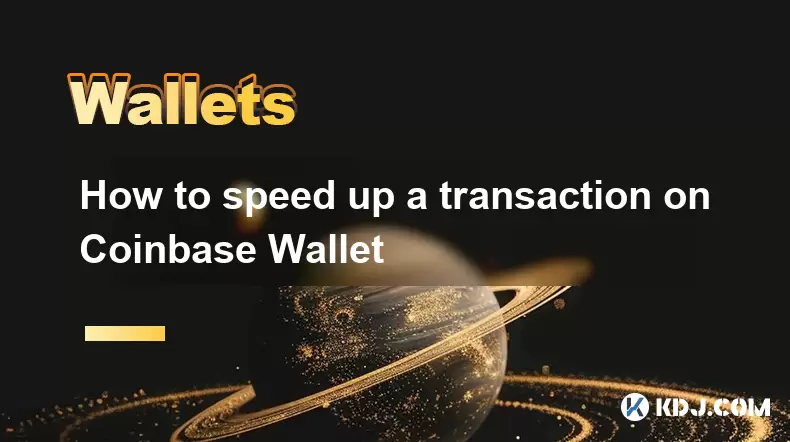
How to speed up a transaction on Coinbase Wallet
Jul 27,2025 at 07:14am
Understanding Transaction Speed on Coinbase WalletWhen using Coinbase Wallet, users may occasionally encounter delays in transaction confirmations. Th...
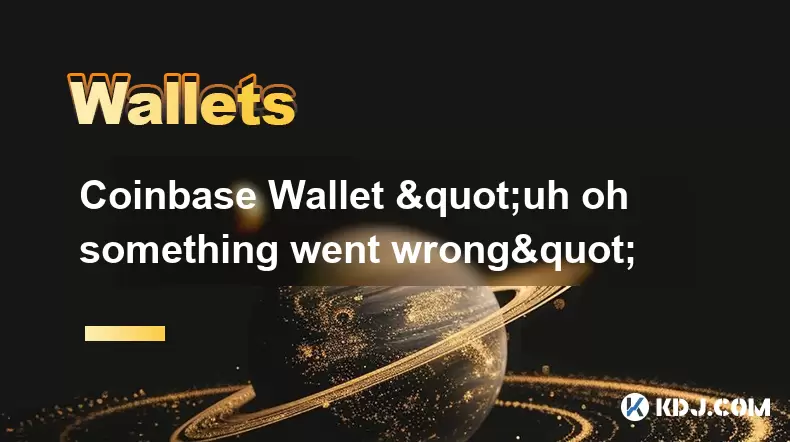
Coinbase Wallet "uh oh something went wrong"
Jul 20,2025 at 10:00am
Understanding the Coinbase Wallet Error: 'Uh Oh, Something Went Wrong'If you're a Coinbase Wallet user, encountering the error message 'Uh Oh, Somethi...
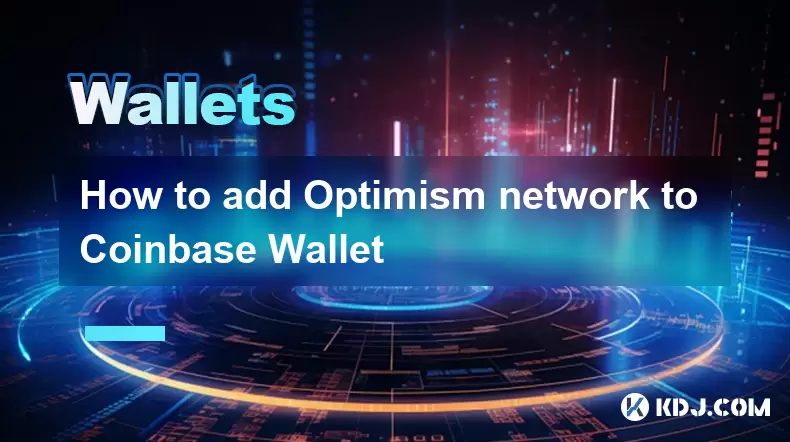
How to add Optimism network to Coinbase Wallet
Jul 20,2025 at 05:21am
What is the Optimism Network?The Optimism network is a Layer 2 scaling solution built on top of the Ethereum blockchain. It aims to enhance transactio...
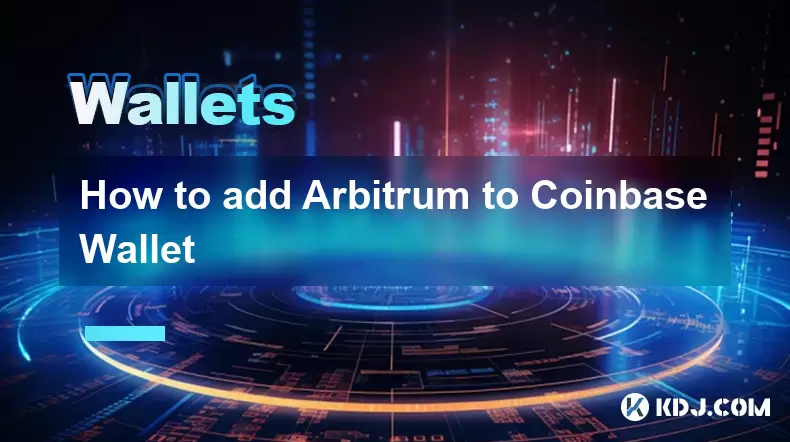
How to add Arbitrum to Coinbase Wallet
Jul 18,2025 at 03:00pm
Understanding Arbitrum and Its Integration with Coinbase WalletArbitrum is a layer-2 scaling solution developed by Offchain Labs to enhance the speed ...

How to bridge assets on Coinbase Wallet
Jul 27,2025 at 01:14am
What Is Asset Bridging in the Context of Coinbase Wallet?Bridging assets refers to the process of transferring tokens from one blockchain network to a...

Can I use Coinbase Wallet without a Coinbase account?
Jul 18,2025 at 04:35am
What is Coinbase Wallet?Coinbase Wallet is a self-custodial wallet that allows users to store, send, and receive various cryptocurrencies directly on ...

How to speed up a transaction on Coinbase Wallet
Jul 27,2025 at 07:14am
Understanding Transaction Speed on Coinbase WalletWhen using Coinbase Wallet, users may occasionally encounter delays in transaction confirmations. Th...

Coinbase Wallet "uh oh something went wrong"
Jul 20,2025 at 10:00am
Understanding the Coinbase Wallet Error: 'Uh Oh, Something Went Wrong'If you're a Coinbase Wallet user, encountering the error message 'Uh Oh, Somethi...

How to add Optimism network to Coinbase Wallet
Jul 20,2025 at 05:21am
What is the Optimism Network?The Optimism network is a Layer 2 scaling solution built on top of the Ethereum blockchain. It aims to enhance transactio...

How to add Arbitrum to Coinbase Wallet
Jul 18,2025 at 03:00pm
Understanding Arbitrum and Its Integration with Coinbase WalletArbitrum is a layer-2 scaling solution developed by Offchain Labs to enhance the speed ...
See all articles

























































































